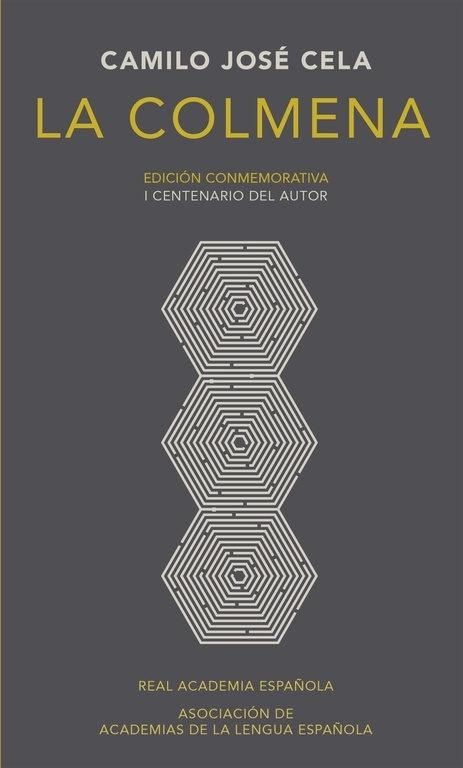La Colmena / The Hive
 “>
“>
Autor:
Camilo José Cela Trulock
Country:
Spain (ES)
Book Theme:
The books of the Nobel prizes
Publisher:
Alfaguara
Publishing Year:
2004
He was born in the Galician town of Iria Flavia, Padrón (A Coruña) He settled with his family in Madrid in 1925, after a childhood spent in Galicia and other parts of Spain. He was a member of the Spanish Royal Academy from 1957 until his death. A master of language and a great innovator of narrative in Spanish, he also wrote poetry and travel books; he is considered one of the greatest writers of the 20th century and the only Spanish novelist to be awarded the Nobel Prize for Literature.
In 1942 he published his first novel “La familia de Pascual Duarte” Another of his great successes was “La colmena” (1951) which he was unable to publish in Spain due to censorship. Most of the manuscripts of his extensive literary work are preserved in the Camilo José Cela Foundation. He died in Madrid.
National Award for Children’s and Young People’s
Abstract
La colmena is one of Cela’s most representative and important works. The first edition was published in Buenos Aires in 1951, and was banned in Spain until 1963 due to censorship by Franco’s military dictatorship.
This novel describes the reality of life in Spain after the Civil War. It is set in the neighbourhoods, streets and cafes of Madrid in 1942, where the misery of Spanish society is marked by hunger, political repression and the lack of property and personal freedom.
The author portrays Spanish life mercilessly, with acidity and his characteristic humour. Without a sense of humour it is not possible to understand Cela or his novels.
The themes of La Colmena are the uncertainty of destiny, the social hypocrisy of the people and the lack of communication. The book is structured in six chapters and an epilogue. Each of the chapters focuses on a specific character and describes a brief episode in his or her life. The characters and events will come together in the same way as a hive of bees to achieve much more than they can achieve separately.
As Camilo José Cela himself states in a note to the first edition, this novel “is nothing other than a slice of life narrated step by step, without reticence, without strange tragedies, without charity, as life goes by”
The film director Mario Camus managed to bring to the screen an excellent adaptation of this post-war novel, for which he won the Golden Lion at the Berlin International Film Festival in 1983.



